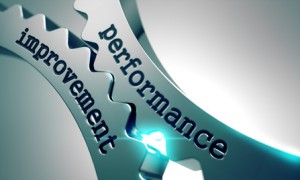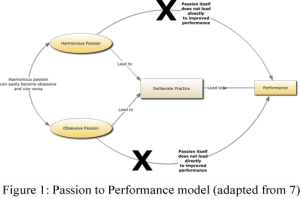by Kazeem Olalekan
Economists are a funny lot! They are obsessed with the two P’s of the economy: Performance & Productivity. Productivity is commonly defined as a ratio between output volume and the volume of input (1). As we know from our elementary physics – that the law of conservation of energy holds for any closed system whereby energy can neither be created nor destroyed but can be transformed from one form to another; even in special relativity provided the frame of reference of the observer is unchanged (2) – it will be odd to aspire for a level of productivity greater than unity. Then again, the system we are operating in is not closed and the frame of reference is a moving target. So if an economy achieve a level of productivity greater than 1, then another economy, somewhere will achieve a productivity less than 1 (a zero-sum game). Paul Krugman (3), that renowned and award winning American economist, wrote in his book: Age of Diminishing Expectations (1994):
Productivity isn’t everything, but in the long run it is almost everything. A country’s ability to improve its standard of living over time depends almost entirely on its ability to raise its output per worker.
The Organisation for Economic Co-operation and Development (OECD) is always looking to define a reliable measure of productivity. Let the economist do what they must but as a pharmacist working in the coalface of professional practice, how will I measure my productivity and what target should I set myself? My view on this is clear: we must always start with a level productivity that is unity. If I was using a multi-factor productivity index, I will consider the following:
- What are the GPhC minimum requirement to maintain my registration (fitness to practice)? (4)
- What are the minimum requirement I set myself in my current professional practice?
- What are the minimum requirement I need to achieve my 5-year forward view?
If I can achieve all these minimum requirements, then my productivity is unity. As long as I define these indices in a SMART way, then I can consider myself to be productive.
Performance is another indicator used by economists to describe the achievement of economic objective. I feel performance measures outcome whilst productivity measures activity. Volume of activity in itself does not equate to performance. You can be productive and achieve nothing! That is why I am using this medium to discuss a theory I came across a few years back that led to my writing of the passion article in the PJ (5) and the publication of the work on level of pharmacy engagement of preregistration and final year students (6). The dualistic model of passion proposed by Vallerand and others (7,8) proposes that passion represents a major motivational force that lead one to engage in deliberate practice. Both harmonious and obsessive passion are hypothesised to lead to deliberate practice, which in turn lead to performance attainment. The model is not hypothesised to influence performance directly. Rather, passion sets things in motion by providing people with the energy and goals to engage in deliberate practice, and it is deliberate practice that is hypothesised to have a direct influence on performance (Figure 1).
The profession of pharmacy is now focussed on outcomes for patients and our professional development. Our deliberate practice must therefore be aligned to achieving these outcomes to be able to confidently say we performing effectively. So I was really encouraged that the webinar by Jayne Packham in PharmacyWeb forum was well attended by pharmacist who wanted to explore the option of working in the pharmaceutical industry. Others choose to be members of the professional body and others, still, adopt a range of strategies to improve their performance for their patients. Whatever it is, it should be driven by the right mix of passion drivers, steeped in the fundamental value, that as pharmacists, our aim is to optimise the use of medication in whatever setting we find ourselves.
References:
- OECD (Defining & Measuring Productivity http://www.oecd.org/std/productivity-stats/40526851.pdf
- Conservation of Energy: https://en.wikipedia.org/wiki/Conservation_of_energy
- Paul Krugman: https://en.wikipedia.org/wiki/Paul_Krugman
- GPhC (Fitness to Practice): https://www.pharmacyregulation.org/raising-concerns/registrants/definition-fitness-practise
- Let’s hear it for passion in pharmacy: http://www.pharmaceutical-journal.com/opinion/comment/lets-hear-it-for-passion-in-pharmacy/11085500.article
- An evaluation of the level of “pharmacy engagement” of preregistration and final year pharmacy students: (Abstract 51): http://bit.ly/1I1U96D
- Vallerand R, Mageau G, Elliot A, et al. Passion and performance attainment in sport. Psychology of Sport and Exercise. 2008;(9):373-392.
- Ericsson K, Krampe R, Tesch-Romer. The role of deliberate practice in the acquisition of expert performance. Psychological Review. 1993;100(3):363-406.








Leave a Reply